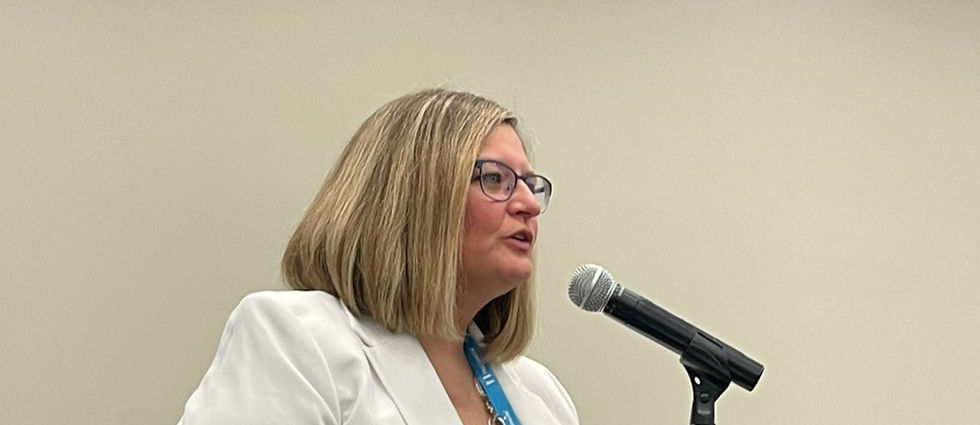Leading by Example in Divided Times
- On Key Strategies
- Sep 29
- 3 min read
What freedom, responsibility, and restraint can teach us about building trust again
One of the bedrock principles of our nation is the freedom of speech. The First Amendment is not a guarantee of comfort. It protects even the words we don’t like, because if speech can be silenced whenever it offends, then none of us are truly free.
That truth has been tested in recent weeks. The tragic murder of Charlie Kirk, and the uproar that followed—including political talk of prosecuting so-called “hate speech” and the suspension of Jimmy Kimmel’s show, even if briefly—remind us how fragile freedom can feel.
The particulars may change, but the underlying question remains:
How do we safeguard speech without letting fear—governmental, corporate, or cultural—decide which voices are allowed?
But there’s another side to this conversation, one I believe deserves just as much attention. Our words don’t just carry legal weight; they reveal who we are. In my faith tradition, I've been taught that what comes out of our mouths reflects the condition of our hearts. That perspective shapes how I think about speech—not only as a right protected by law, but as a reflection of character.
Even if you don’t share my faith, you likely share the conviction that words matter—that they can heal or harm, build trust or destroy it. That truth is universal. We all know the sting of a sharp word spoken in anger, and we all know the encouragement that comes from words offered with compassion and respect.
We hear constant calls to “turn down the temperature” in our politics. But too often, those words are just that—words. Few are willing to do the harder work of actually leading by example.

The real test of leadership is not whether we demand civility from others, but whether we embody it ourselves—even when it’s inconvenient or unpopular.
I believe that’s true not just for individuals, but for communities too. If our public square is filled with rage, maybe it’s because too many leaders have chosen to model outrage rather than restraint.
I’ll be honest: I don’t always get this right. There are times when my temper gets the best of me, when my words come out sharper than I intend. But I know this too—if I let fear or anger shape my words, I’ve missed an opportunity to build up rather than tear down. And in public life especially, I’ve seen how careless or cutting words don’t just pass in the moment—they deepen divides and erode trust. This is why I feel an even greater responsibility to speak carefully and wisely, and to model what it looks like to hold both freedom and responsibility together.
As an elected official, I carry that responsibility more keenly. When I sit in a public meeting, post on social media, or address difficult issues in the community, I know my words carry weight. People draw conclusions about my values, my integrity, and even my faith from the language I choose. Leadership is not only about policy or budgets. It is also about how faithfully we steward the trust we’ve been given—including in the words we speak. Leaders set a tone—sometimes intentionally, sometimes not—and our communities often mirror the example we set. If our words are careless, dismissive, or cutting, we shouldn’t be surprised when our public square feels the same.
So I ask myself—and I invite you to do the same—what do our words show? In moments of grief or outrage, do our voices reflect humility and compassion, or bitterness and judgment? When we disagree, do we aim to persuade and understand, or simply to wound and dismiss?
The condition of our hearts doesn’t just shape our private lives—it shapes our public witness. In a time when trust in institutions is fragile, the words we choose may matter more than we realize.
Freedom of speech is worth protecting, and right now it needs defending. But freedom also calls for wisdom. If we allow government power, public outrage, or regulatory threats to silence voices, we risk losing far more than a television show or a social media post. We risk losing the very freedom that allows us to debate, to disagree, and to find common ground.
That’s why I believe it is time for all of us—especially those in leadership—to hold both truths together: to defend speech when it is threatened, and to model responsibility in how we use it.
If more of us chose humility over outrage and responsibility over fear, our politics—and our communities—would look more like the America we all say we want. Freedom is worth protecting. And so is the character revealed in how we use it. Because in the end, our democracy depends on both.
Thanks for reading,
~ Shannon




